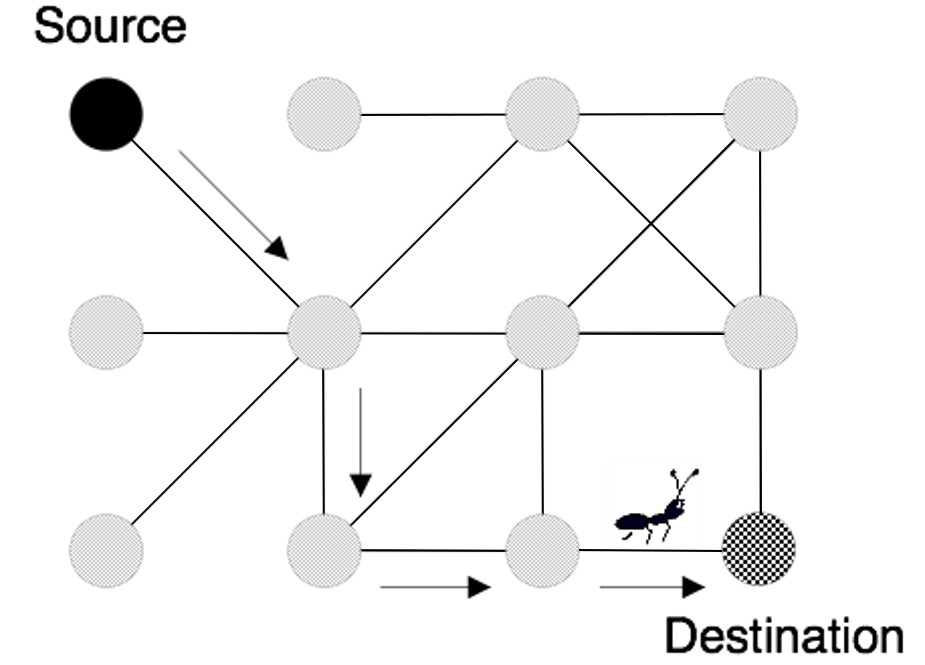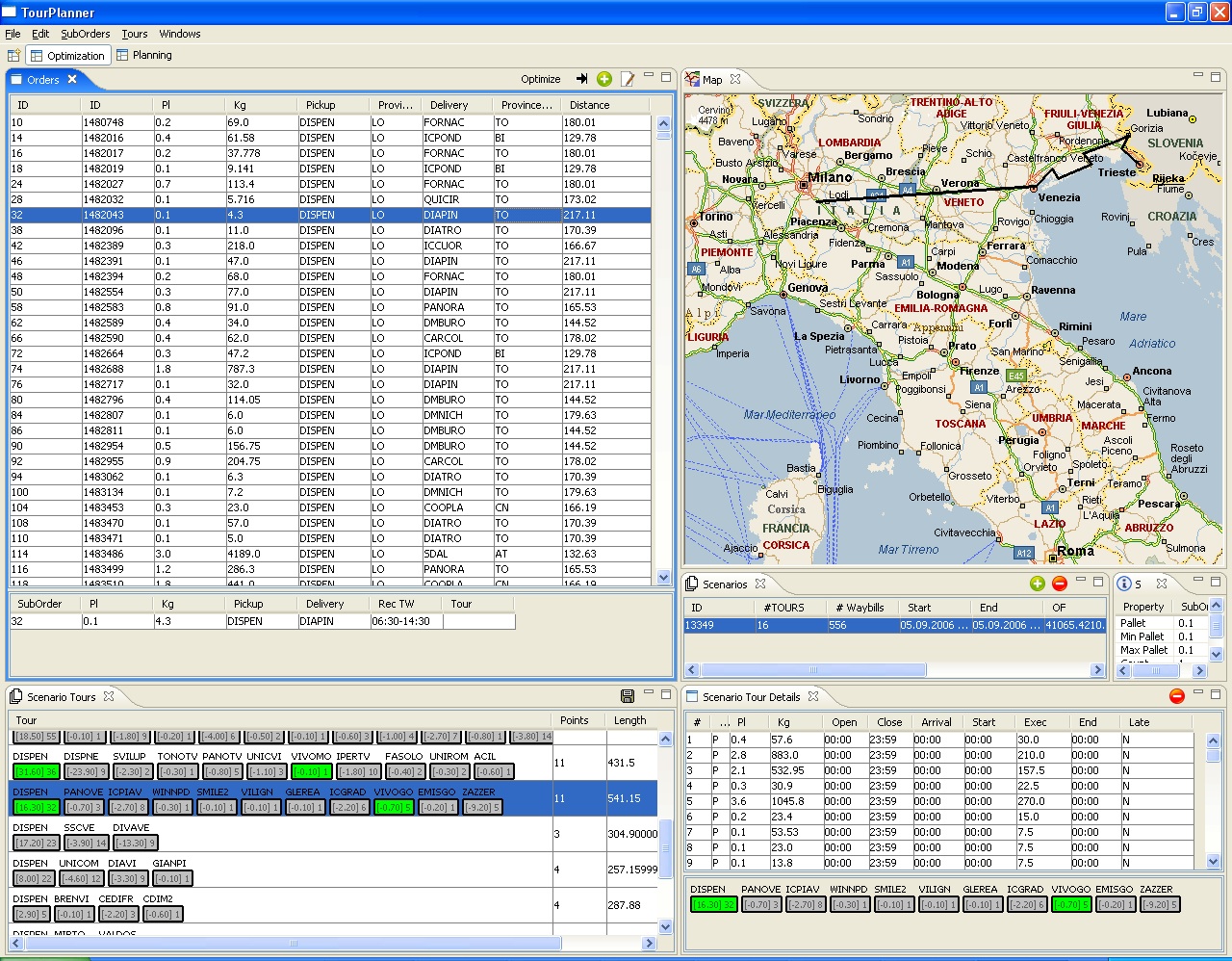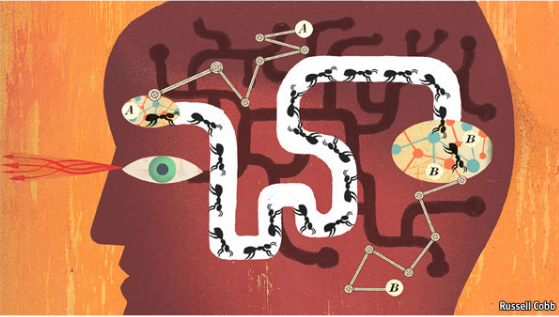Chi siamo
- Visione
- Vantaggi
- L'azienda
- Mission
Visione
Immagina un network di laboratori di ricerca dove un gruppo di scienziati sviluppa algoritmi innovativi nel campo dell'ottimizzazione dei trasporti, dello scheduling e del data mining. Pensa a un centinaio di problemi di benchmark migliorati da questi algoritmi. Consulta le maggiori riviste scientifiche che pubblicano i risultati di queste ricerche. Confronta i progetti di sviluppo che coinvolgono partner industriali. Guarda nascere una nuova azienda che combina queste esperienze e le mette a tua disposizione.


Vantaggi
AntOptima's software is flexible and it evolves with your company's growth. We build intelligent systems that learn from past experience how to continuously improve the quality of the solutions.
The purpose of our products is to supply intelligent methodologies able to master the existing high level of complexity, to automate and to optimize the distributive and productive processes. We distinguish ourselves for:
- high product specialization
- quality and innovation in the proposed solutions
- guaranteed performance/results
- skill and professionalism
- customer oriented


L'azienda
AntOptima è un'azienda innovativa fondata a Lugano nel 2001 come spin-off dell'Istituto Dalle Molle di Studi sull'Intelligenza Artificiale (IDSIA) che dal 1988 svolge un'attività di ricerca riconosciuta a livello mondiale grazie alle numerose publicazioni e alla partecipazione a progetti di rilevanza internazionale. AntOptima si pone quale interfaccia tra la ricerca di punta e la realtà produttiva, mettendo a disposizione delle aziende tecnologie e idee innovative per la soluzione di problemi di ottimizzazione, di gestione della produzione e di logistica integrata. Grazie ad un team composto da scienziati, ricercatori ed esperti di business e tecnologie aziendali altamente motivato, AntOptima è in grado di risolvere problemi applicati complessi nei quali viene richiesta una profonda conoscenza del sistema produttivo e delle tecniche risolutive. AntOptima integra algoritmi innovativi e soluzioni hardware all'interno di sistemi informativi già assestati. Le soluzioni proposte sono flessibili e possono evolvere con lo sviluppo delle attività dell'azienda. Infatti, le tecnologie utilizzate creano sistemi che imparano dall'esperienza e migliorano in continuazione le qualità delle soluzioni ottenute.


Mission
In questo periodo in cui stanno avvenendo sostanziali cambiamenti nel campo dei processi logistici ed industriali, i tradizionali sistemi di pianificazione adottati dalle imprese divengono rapidamente obsoleti, incapaci di sostenere le mutevoli condizioni dei mercati e l'aumentata competitività dei concorrenti. Durante numerosi anni di ricerche teoriche ed applicative, abbiamo maturato la conoscenza e la capacità per risolvere questa complessità attraverso l'informatica reattiva, un nuovo modo di gestire l'azienda in base alle esigenze di mercato e agli obiettivi dell'azienda. Uno strumento dinamico che consente di rispondere alla crescente complessità e che permette ad un'azienda di differenziarsi dai propri concorrenti e ottenere vantaggi duraturi in termini di efficienza e risparmio dei costi, reagendo tempestivamente alle situazioni competitive che si presentano, ottimizzandole.








